If you are a prospective cat parent searching for a cat that is a perfect fit for your family, you will probably find that two things draw you to potential cats: appearance and personality.
Perhaps you're partial to a particularly affectionate cat or captivated by the mystique of an all-black coat.
You might even be planning a visit to a shelter or pet store, open to discovering a connection with a cat that feels just right.
In this process, a question might gently arise: Is there a relationship between a cat's coat color and its personality?
While there is no solid evidence to support a connection between fur color and personality, several cat owners claim that there are correlations between the two.
From our vibrant online forum, we've gathered a medley of personal observations from cat lovers who discern unique personality traits correlated with their cat's coat color:
- The playful charm of white cats adorned with black spots is said to be as captivating as their striking looks.
- Black cats, cloaked in their midnight fur, are purportedly sociable creatures with a penchant for frolic.
- With an aura of independence, tortoiseshell cats are believed to prefer their own company over the playful banter of other cats.
- Tuxedo cats, donning their formal attire, are rumored to possess a personality as unique as their coat.
If you want to know more about these claims and see how they measure up against scientific data, stick around and keep reading. We'll also discuss what determines fur color, what the rarest coat color is, and more.
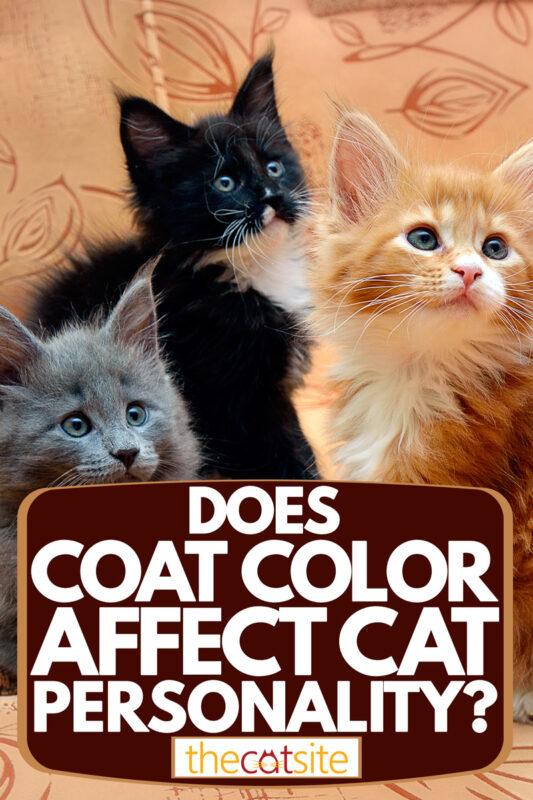
Setting The Stage: The Intriguing Claims
Is There More Playfulness in White Cats With Black Spots?
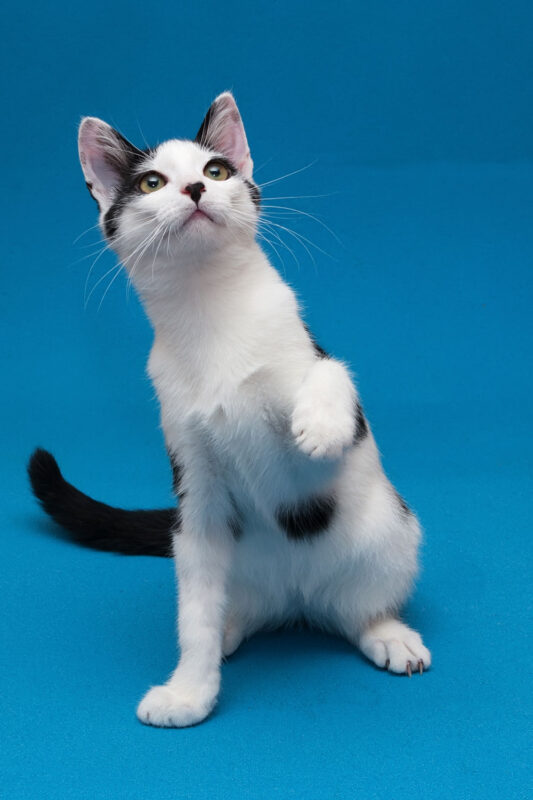
Here's something you might have heard: Cats that sport a coat mostly white with black spots, often referred to as "Cow" cats, are rumored to have larger-than-life personalities and a notable playful streak.
But what's the real story here?
While there's no denying some truth to this, the reason might be more about feline instinct rather than fur color.
Cats, hailing from their larger wild cousins, have a natural talent and passion for hunting.
These instincts, although not necessary in a well-fed domestic cat, manifest as playful behaviors - a fascinating way your cat uses to express its redundant hunting prowess.
Are Black Cats More Drawn to Humans?
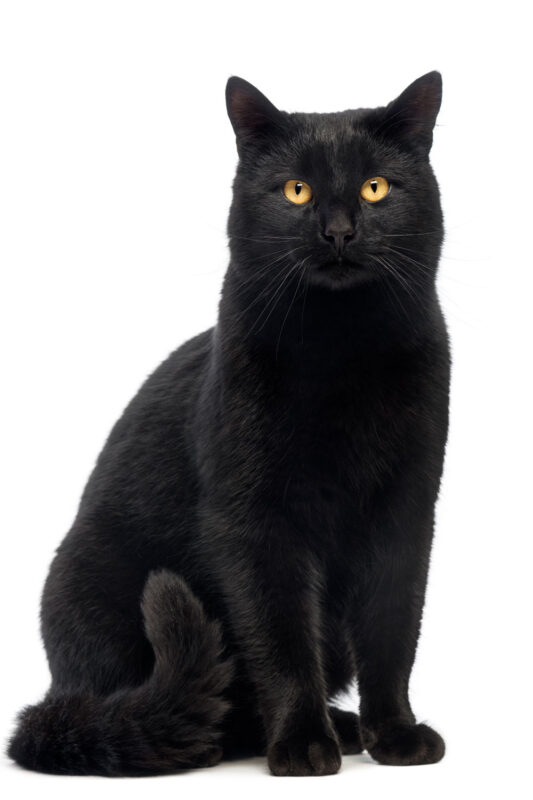
Now, this might pique your curiosity. In the realm of the cat community, black cats are famed as the most people-oriented color. Isn't it ironic, given the traditional superstitions surrounding black cats?
But wait a minute, could this superstition be the key to this phenomenon?
Black cats often face hurdles in getting adopted due to two primary reasons: Families usually gravitate towards cats with brighter fur, a fact supported by a University of California study.
Additionally, shelter workers often hesitate to adopt black cats out, fearing they may be used for malicious intent.
Given these struggles, it makes sense why black cats could become more affectionate towards those kind-hearted souls who offer them a forever home.
Hence, black cats being more people-oriented might be more a case of environment influencing behavior, rather than a connection between fur color and personality.
Is a Black Cat's Affection More Intense?
Ever met a black cat that seemed extraordinarily affectionate? Or one that's distinctly antisocial? Here's the thing - a cat's personality isn't determined by its fur color.
While certain cat owners may staunchly argue that specific colors correlate with unique personality traits, it's important to remember this is based on anecdotal evidence or personal experiences. No scientific research currently supports these beliefs.
Intrigued to learn more about the allure of the black cat? Continue your journey with our article, The Mystique Behind Black Cats.
SIGN UP FOR THECATSITE'S EMAIL UPDATES >
Are Tortoiseshell Cats More Independent Than Their Furry Peers?
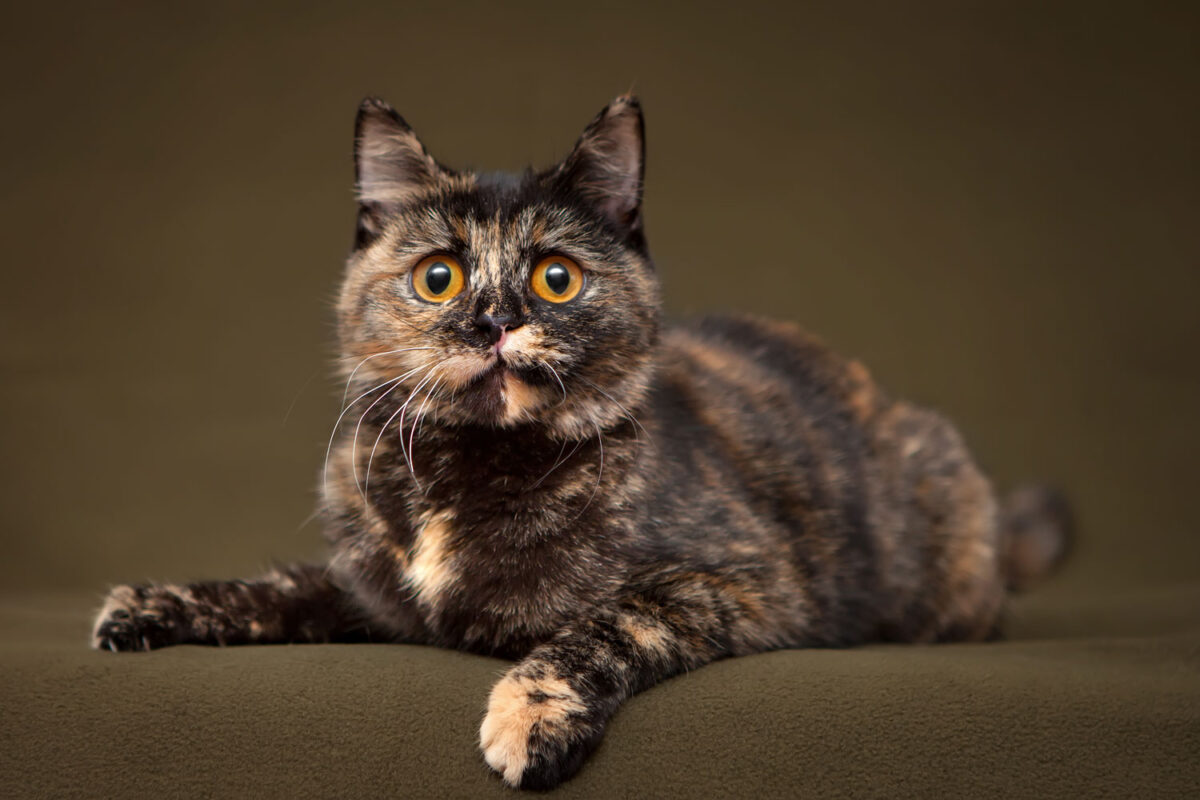
You might have heard from tortoiseshell cat owners that these cats have an attitude to match their distinctive coats.
They're known for taking longer to warm up to other cats and displaying a sassy demeanor. But, how much truth is there to this?
Interestingly, there's no scientific research to back up the notion that tortoiseshell cats have a sassier attitude than other colored cats. But here's a fascinating theory that scientists offer: It could be all about gender!
Due to the impact of sex genes on certain fur shades, nearly all tortoiseshell cats are female. Male tortoiseshell cats are genetic rarities.
As female cats are generally feistier than males, this could potentially explain the perceived correlation between tortoiseshell fur color and a fiery personality.
The Unique Personality of Tuxedo Cats: Fact or Fiction?
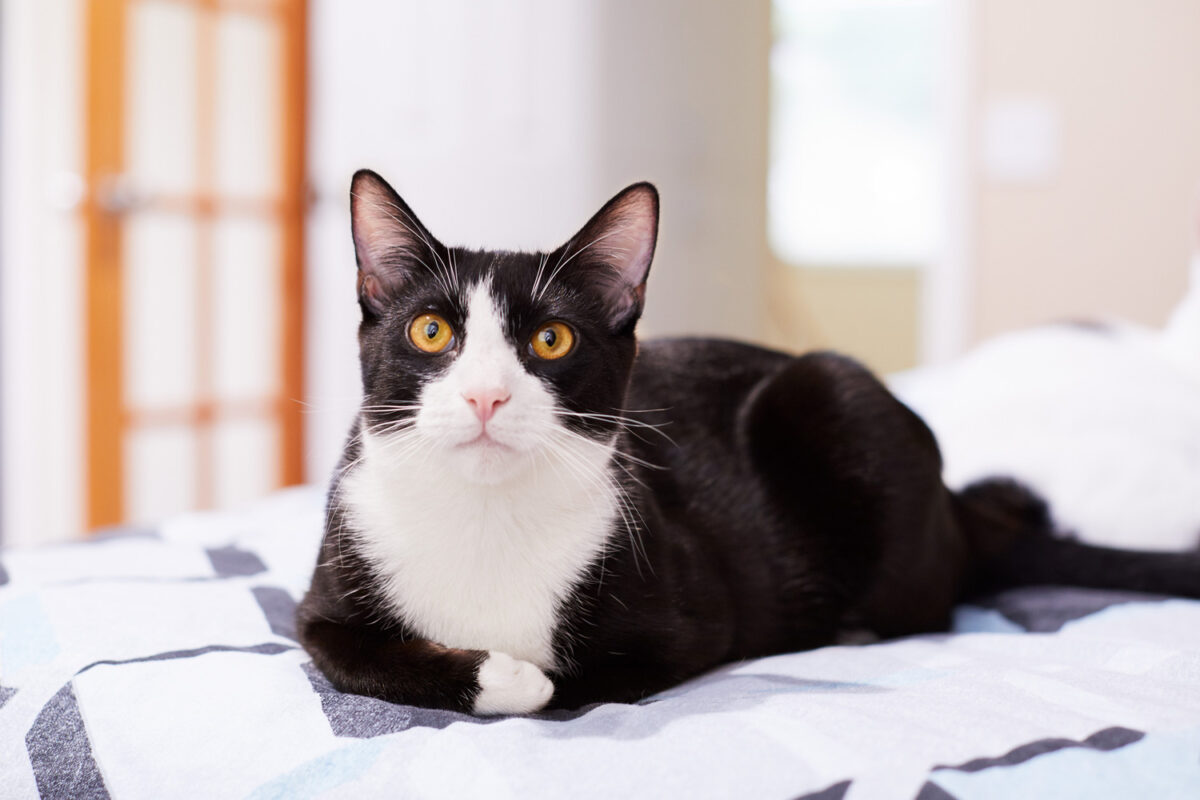
Ever noticed something different about tuxedo cats? Many cat owners seem to agree on one thing: These black and white felines possess a uniquely charming personality. But what's the real scoop behind this?
One possibility could be tied to the historical significance of tuxedo cats. These cats were held in high regard in ancient civilizations, including Ancient Egypt.
With such a long history in the limelight, it's natural that tuxedo cats' behaviors have been subject to more scrutiny.
Another intriguing point to ponder is that tuxedo cats aren't confined to a single breed. Various cat breeds can result in distinctive black fur with white markings that set tuxedo cats apart.
Given that a cat's breed can influence its personality, it's worth exploring whether this contributes to the perceived unique personality of tuxedo cats.
The Science Behind Cat Fur Colors: What's in the Genes?
Just like us humans, feline traits, including fur color, are handed down by genetics.
Dominant colors, such as shades of black and red, often take center stage, while recessive colors like cream and blue stay backstage.
Want to guess the color of future kittens? A glance at their parents might give you a clue.
But, hold on! The genetic world loves to surprise us.
Sometimes, recessive genes can take over dominant ones, just like when two brown-eyed, brown-haired parents end up with a blue-eyed, blonde-haired child.
Curious about the whole spectrum of cat fur colors? Take a look at our comprehensive blog post, Cat Coat Colors And Patterns.
On the Hunt for the Rarest Cat Color: Have You Seen It?
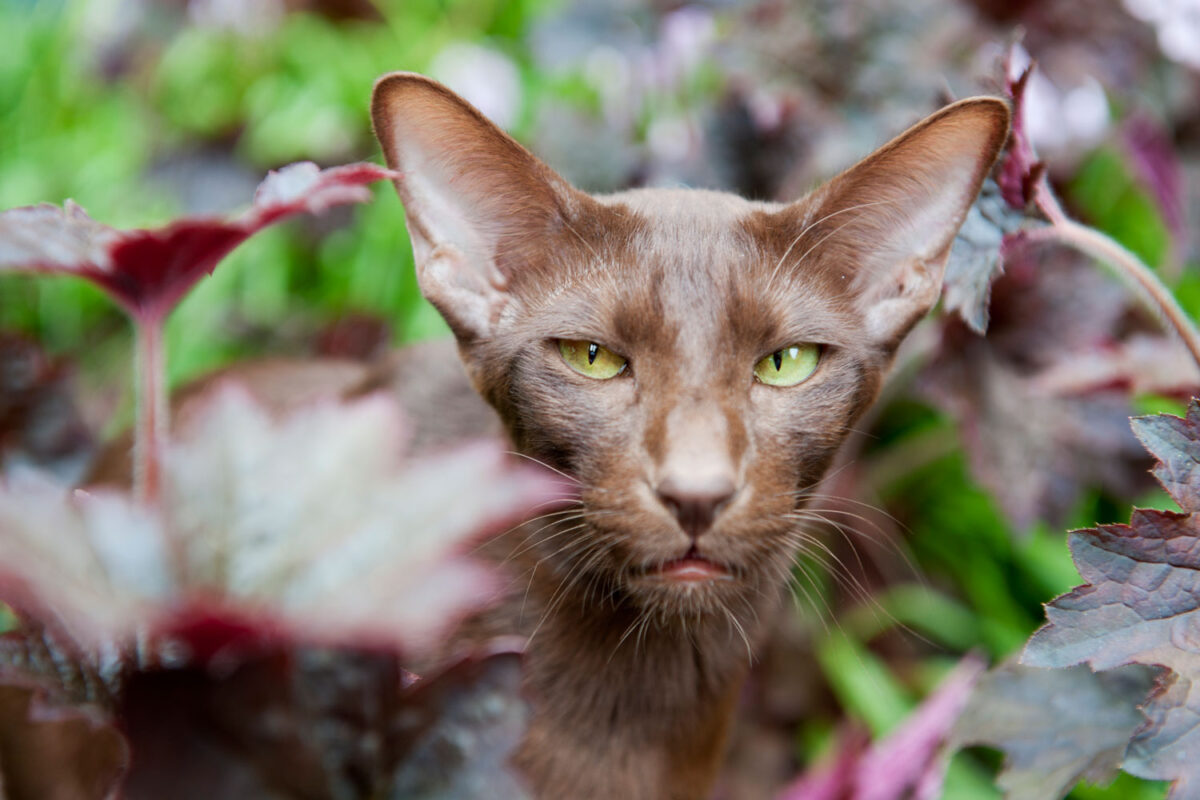
Here's a fun fact: while brown dogs are as common as leaves in a park, chocolate brown cats are a rarity.
The unique genetic combo that crafts this luxurious chocolate coat is incredibly hard to come by. Fascinating, isn't it?
Seeking the Friendliest Cat: Is Color a Clue?
Often, orange and bi-colored cats are crowned as the friendliest felines. But remember, coat color and personality aren't scientifically linked.
If you're on a quest for a friendly feline companion, success lies in keeping an open mind. Interacting with cats of all colors, not just those with a reputation for friendliness, will lead you to your purrfect match.
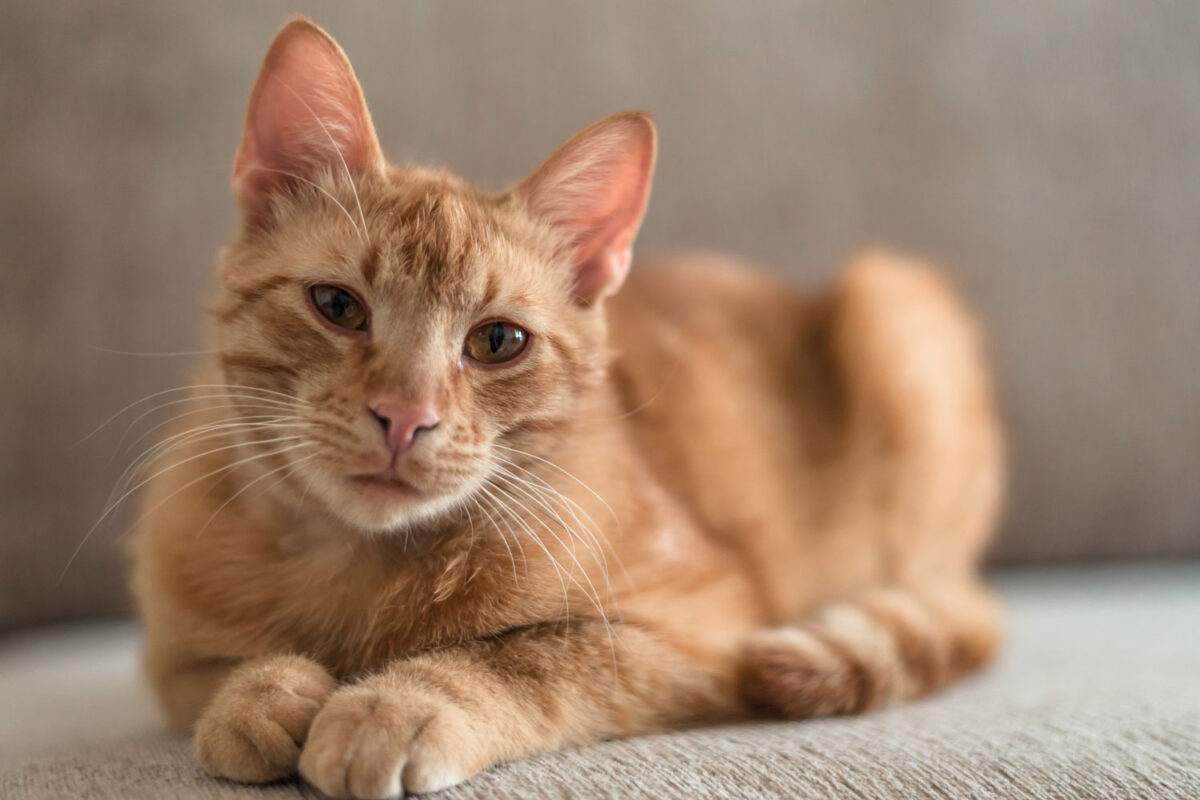
The Key Factors Shaping a Cat's Personality: More Than Meets the Eye
Peering into a cat's personality, you'll find it's a complex tapestry woven from several factors. Breed, life experiences, and genetics all play pivotal roles, with an unexpected contender, face shape, also having a say.
The Influence of Breed: A Personality Blueprint?
A cat's breed might offer a sneak peek into its potential personality traits. If the breed is unknown, the cat's behavior could even hint at its breed lineage.
This intersection of appearance and behavior often leads to the myth linking fur color with personality.
For instance, Siamese cats, adorned with short cream fur, darker extremities, and mesmerizing blue almond-shaped eyes, are renowned for their intelligence and affection.
Such correlations between physical characteristics and personality traits might lead to the misconception that fur color influences personality.
If you want some help figuring out what your cat's breed is, check out What Breed Is My Cat?
The Weight of Life Experience: Nature or Nurture?
The age-old debate of nature versus nurture isn't just for humans. It deeply influences feline behavior too. Life experiences shape a cat's personality significantly.
For example, a cat rescued from an abusive home might be timid and slow to trust, while a feral cat, used to fending for itself, might be more independent and less attention-seeking.
Social exposure also plays a part. A cat socialized with other pets and children from a young age may be more relaxed around other animals.
Conversely, an elderly cat, previously the only pet, might find the presence of other animals or children overwhelming.
Want to know more? Read our post: 10 Must-know Tips For Happy Living With A Shy Cat
The Role of Genetics: Like Father, Like Son?
Genetics also contributes to a cat's personality. Interestingly, kittens tend to inherit their father's personality traits, even without direct exposure.
Of course, they learn from their mother through observation, but a kitten with a skittish father might also exhibit skittish behavior, despite never having met him.
The Final Word: The Enigma of Personality Traits in Cats
The global trend of associating cat fur color with personality traits remains a mystery.
It could be a self-fulfilling prophecy where cat owners' initial observations influence how they perceive their cats. Or, it might stem from fond memories of past pets with similar appearances.
While these assumptions are usually harmless, it's essential to avoid judging a kitty by its fur.
Doing so could inadvertently perpetuate negative stereotypes, impacting adoption rates or leading to disappointment if a cat doesn't match expected behaviors.
The best approach? Choose your feline friend based on the unique connection you share.
SIGN UP FOR THECATSITE'S EMAIL UPDATES >
Note: We may get commissions for purchases made through links on this page.

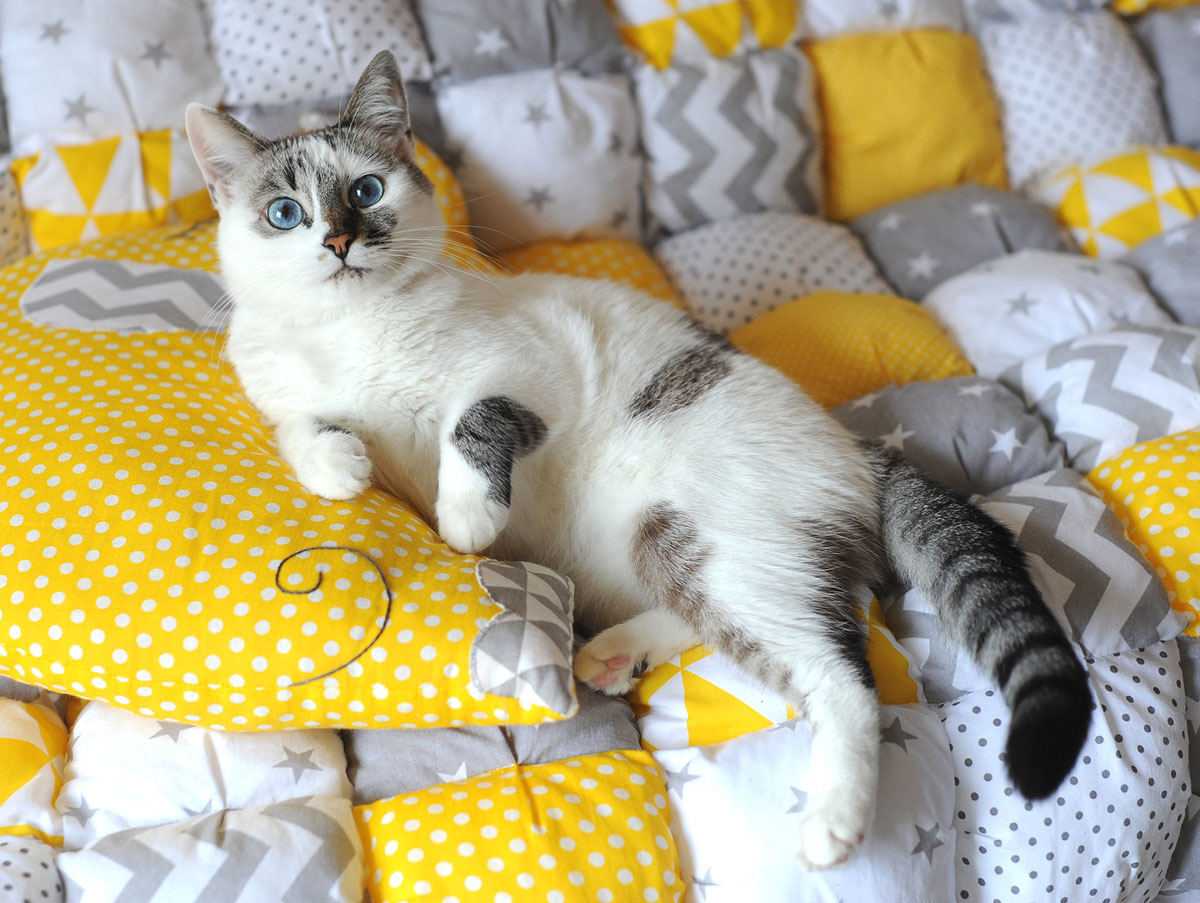
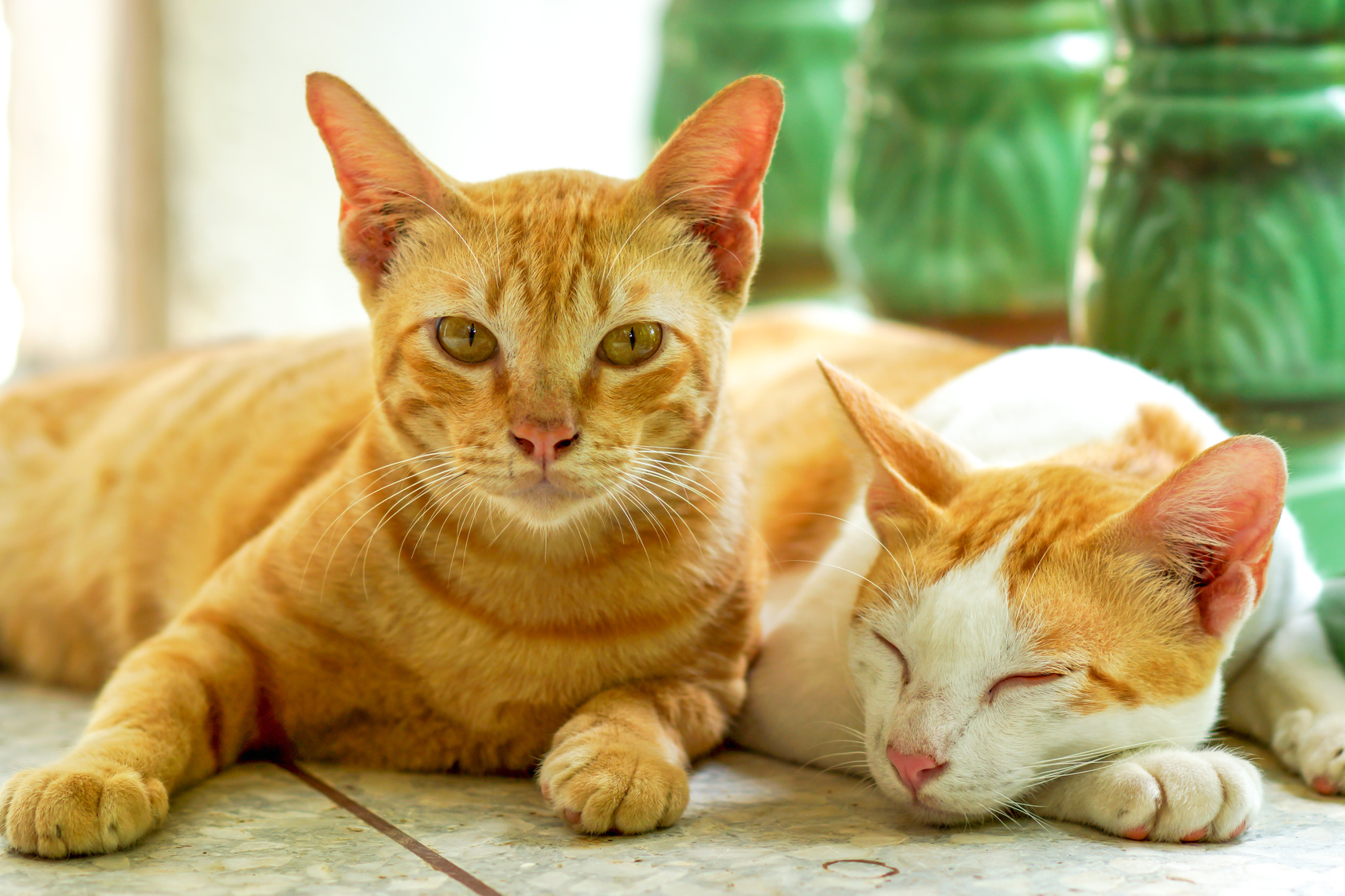
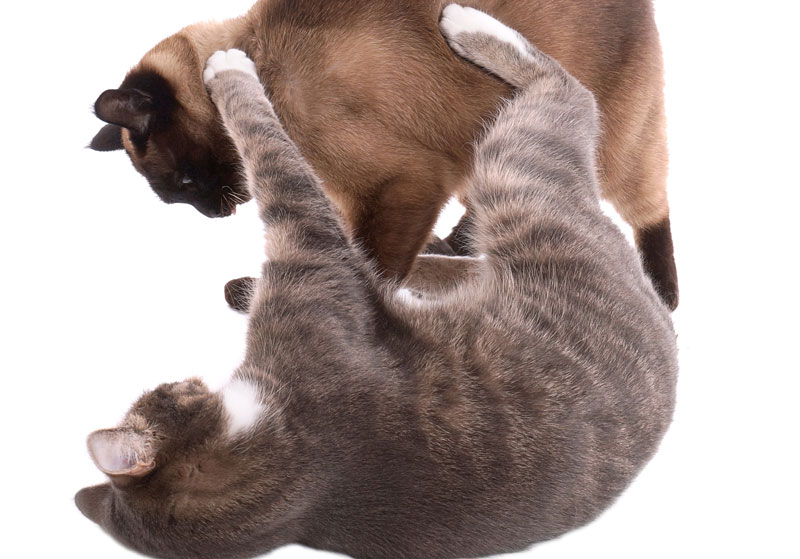
3 comments on “Does Coat Color Affect Cat Personality?”